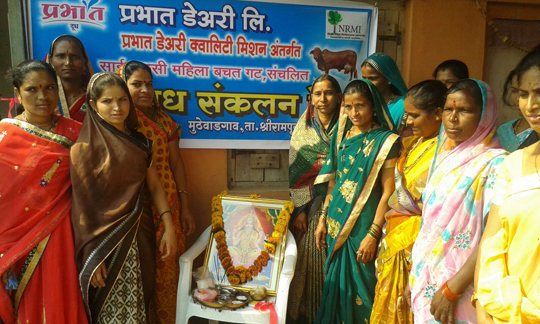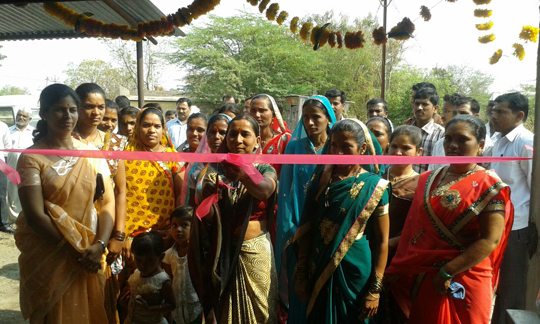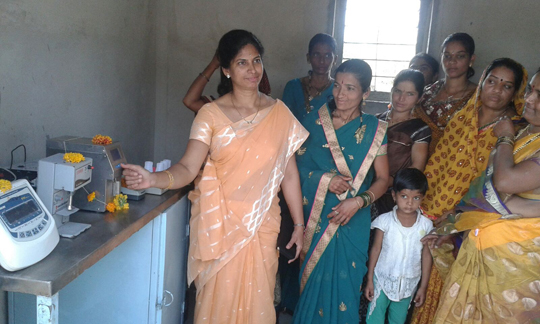Prabhatsakhi' is a milk oriented initiative by Prabhat Dairy that runs operations through entire Ahmednagar. Through this programme Prabhat Dairy wants to give an aim to the life of women at grass root level, change their pace of lives by providing employment support and boost their economic development. Under this Program women Self Help Group will be formed at the village level and they will be trained on the different aspect of Dairy. For example, production of Fodder, making of Sileage bags, running of Milk collection centeretc. Currently villages have intermediaries for supply of Fodder and other necessary requirements.

These intermediaries always charge farmer high for their services. This women self help group will act as an intermediaries between the farmer and the company and hence the farmer will get better service and cost effective solutions. Prabhat will help these self help groups in getting the desired materials as per there requirement.
Initially, the villages that already have a Prabhat establishment shall be given priority. In the first stage, the talukas of Shrirampur, Nevasa, Rahuri, Rahata, Kopargaon, Shevgaon, Pathardi, Sangamner and Vaijapur shall be given priority.
The overall objective of Prabhat Sakhi -
1) Empowering Women and increasing their standard of living by providing them with a guaranteed source of income is the aim ofPrabhatsakhi'.
2) Providing Community support groups (Joint Liability Groups; JLG) with Milk harvesting plants just like Women support groups will be a priority.
3) The womens' groups that are ready to start their milk harvesting plants will be provided with products made at the Prabhat outlet at a discounted rate to be sold further to other people.
4) Every producer of the milk shall be paid within 10 days and the amount will be directly deposited in the woman's bank account.
5) Women will be visited to their respective villages and will be trained about how to sustain an affordable milk business.
6) Willing women individuals will be trained in the artificial insemination of cows in their wombs with the sperm of tried and tested bulls.
7) The owner of the cow giving the most milk and the woman that runs the most sustainable milk business shall receive rewards twice per year.
8) The milk production units run by Women Support Groups shall be awarded special bonuses before Diwali.
9) The women providing milk to Prabhat dairy will be either given free medical assistance or medical assistance at a very low price on behalf of the government and co-operative societies.
10) This is going to be the first of its kind project in the private sector of Maharashtra.
11) From the next year and depending upon the success of the initiative, these working women shall be awarded pension by the name of Rajmata, Ahilyadevi Holkar.
12) An attempt will be made to provide the women with trainings regarding other businesses, syllabus and researches other than the milk industry.







Comments
Add new comment